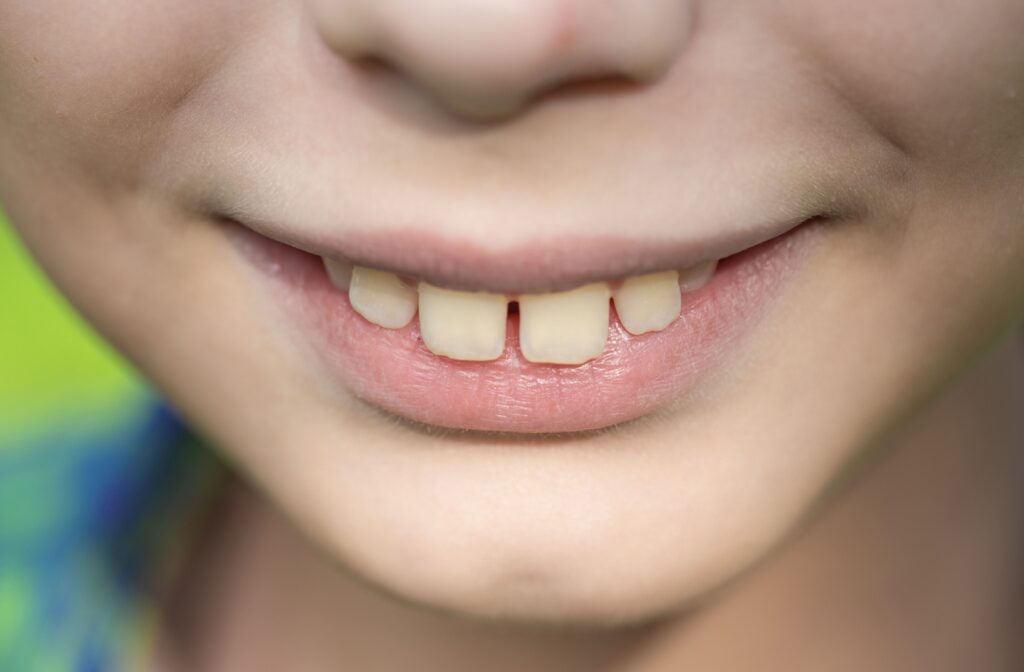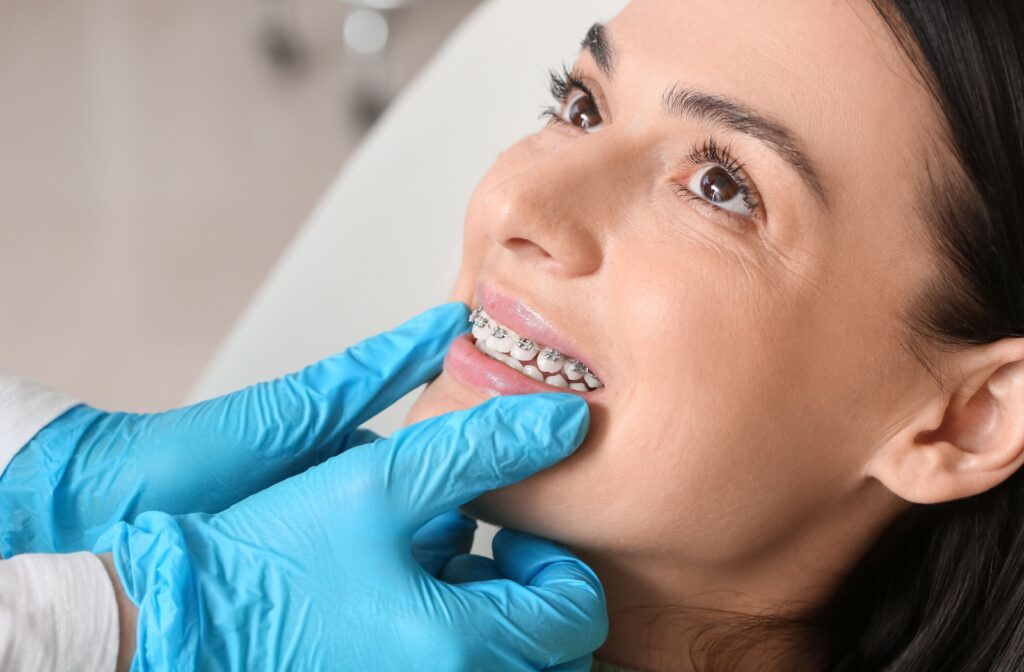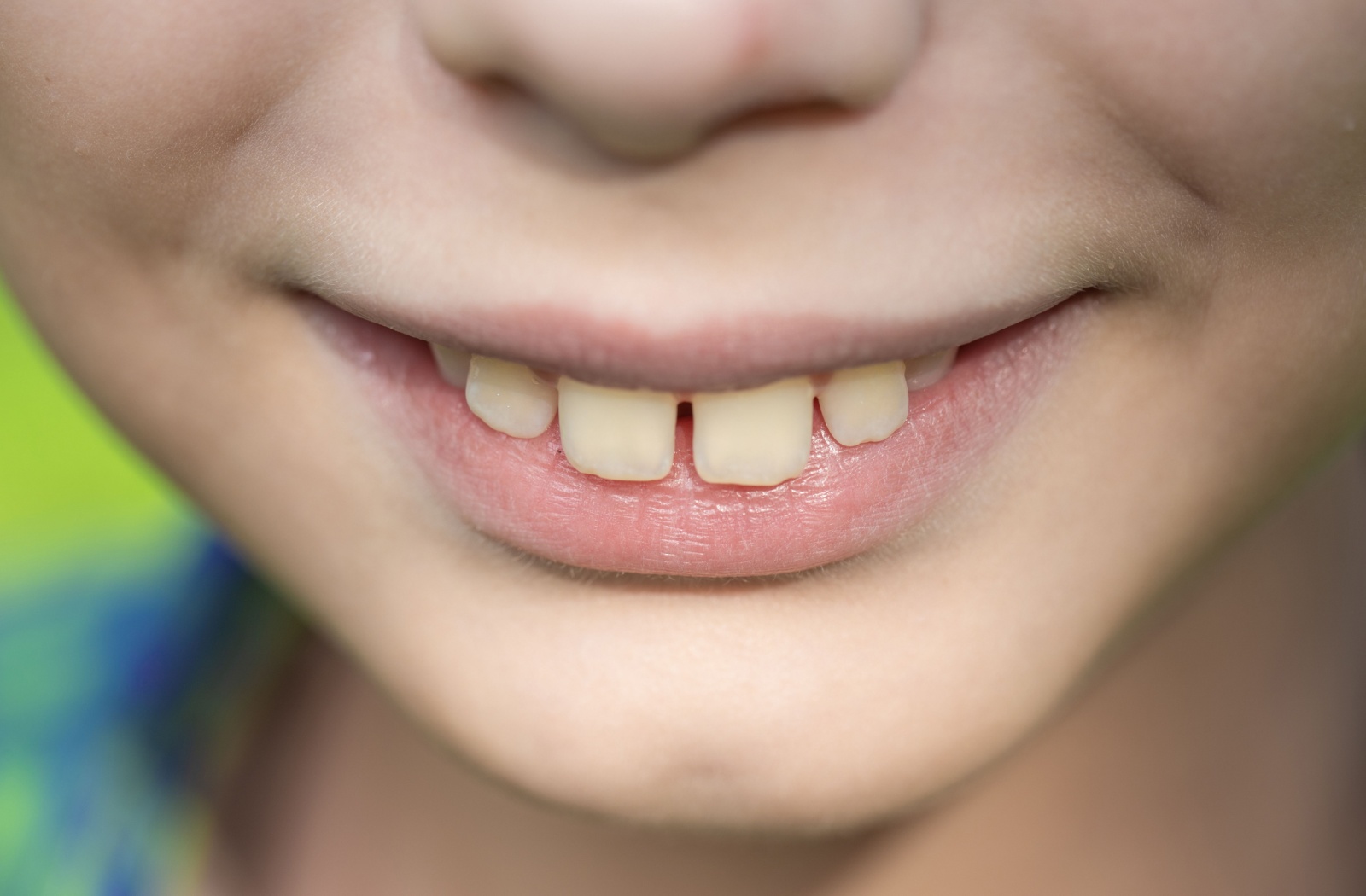
An overbite is one of the most common reasons patients seek orthodontic care, and it’s often more than just a cosmetic concern. While a small overbite is normal, a deep or severe overbite can cause a range of dental and health problems over time. The good news? In most cases, braces can effectively fix an overbite and improve both your smile and overall oral health.
What Is an Overbite?
An overbite occurs when the upper front teeth extend too far over the lower front teeth. Dentists often refer to this condition as a type of malocclusion, or misaligned bite. Overbites can be:
- Vertical: Where the top teeth significantly overlap the bottom teeth.
- Horizontal (Overjet): Where the top teeth protrude outward beyond the lower teeth.
Overbites may be classified further as:
- Dental: Caused by misaligned teeth.
- Skeletal: Resulting from jaw alignment issues.
What Causes an Overbite?
Several factors can contribute to the development of an overbite, including:
- Genetics: If overbites run in the family, children are more likely to inherit similar bite problems.
- Jaw development issues: A jaw that’s too large or small for the teeth can result in spacing or crowding, often leading to an overbite.
- Thumb sucking or pacifier use: Maintaining these habits past age five can shift teeth and bone structure forward.
- Prolonged bottle feeding or tongue thrusting: These can alter the natural alignment of teeth.
- Adult behaviors: Nail biting, chewing on pens, or tooth loss without replacement can shift bite alignment over time.
Common Problems Caused by Overbites
An untreated overbite isn’t just an aesthetic concern—it can also impact your quality of life. Potential complications include:
- Chronic headaches and migraines
- Jaw tension, clenching, or teeth grinding
- TMJ (temporomandibular joint) disorder
- Difficulty speaking clearly or a noticeable lisp
- Increased wear or damage to the front teeth
- Neck and shoulder pain due to jaw misalignment
- Changes to facial structure or a recessed chin appearance
- Greater risk of dental trauma, especially during sports

How Do Braces Correct an Overbite?
Braces work in stages to gradually shift your teeth and jaw into proper alignment:
- Initial alignment: Brackets are bonded to your teeth and connected with an archwire, which gently moves the teeth into alignment.
- Bite correction: Small rubber bands (elastics) are often added to apply pressure that guides the upper and lower jaws into a healthier position.
- Retention: After the braces come off, a retainer or permanent wire helps keep the teeth in place and prevents the overbite from returning.
Elastics play a crucial role in fixing overbites. They’re typically worn from upper to lower brackets, creating continuous pressure that gradually repositions the jaw. For optimal results, patients should wear their bands as instructed—usually all day, except when eating or brushing.
How Long Does It Take to Fix an Overbite with Braces?
The length of treatment depends on how severe the overbite is and whether other issues like crooked teeth or crowding are present. In general:
- Mild to moderate overbites may take 12 to 24 months to correct with braces.
- Severe overbites may require 24 months or longer.
- After braces, wearing a retainer is crucial to maintaining the results long-term.
Can Braces Alone Fix All Overbites?
In many cases, yes—but not always.
- For children and teens: Braces are usually effective because their jaws are still growing, making it easier to guide them into the correct position.
- For adults with severe skeletal overbites: Braces alone may not be enough. In some cases, surgical intervention or tooth extractions may be necessary to fully correct the bite.
Your orthodontist will assess your unique needs with the help of X-rays, 3D scans, and bite analysis before recommending a personalized treatment plan.
Early Orthodontic Intervention for Children
When it comes to overbites, early diagnosis and treatment can prevent more serious problems down the road. Children as young as 7 may benefit from early orthodontic evaluation. Treatments may include:
- Palate expanders: Used to widen a narrow jaw and create space.
- Partial braces: To begin guiding the teeth and jaw into proper alignment.
- Behavioral guidance: Encouraging kids to stop habits like thumb sucking or tongue thrusting.
The earlier treatment begins, the more likely it is to prevent the need for extractions or jaw surgery later in life.
What Are the Benefits of Fixing an Overbite?
Correcting an overbite has a number of benefits:
- Improved facial appearance and profile
- Easier chewing and speaking
- Reduced jaw and neck pain
- Better oral hygiene and easier brushing
- Decreased risk of tooth injury and wear
- Boosted self-confidence
For children, it can also mean less teasing at school and better overall emotional well-being.
Schedule a Consultation Today
If you or your child has an overbite, it’s important not to delay treatment. Whether the issue is mild or more severe, early evaluation and a custom orthodontic plan can make a huge difference in long-term dental health and comfort.
At Happy Sapiens Dental, we specialize in personalized orthodontic care and are here to guide you every step of the way. Contact us today to schedule your consultation and take the first step toward a healthier, more balanced smile.


